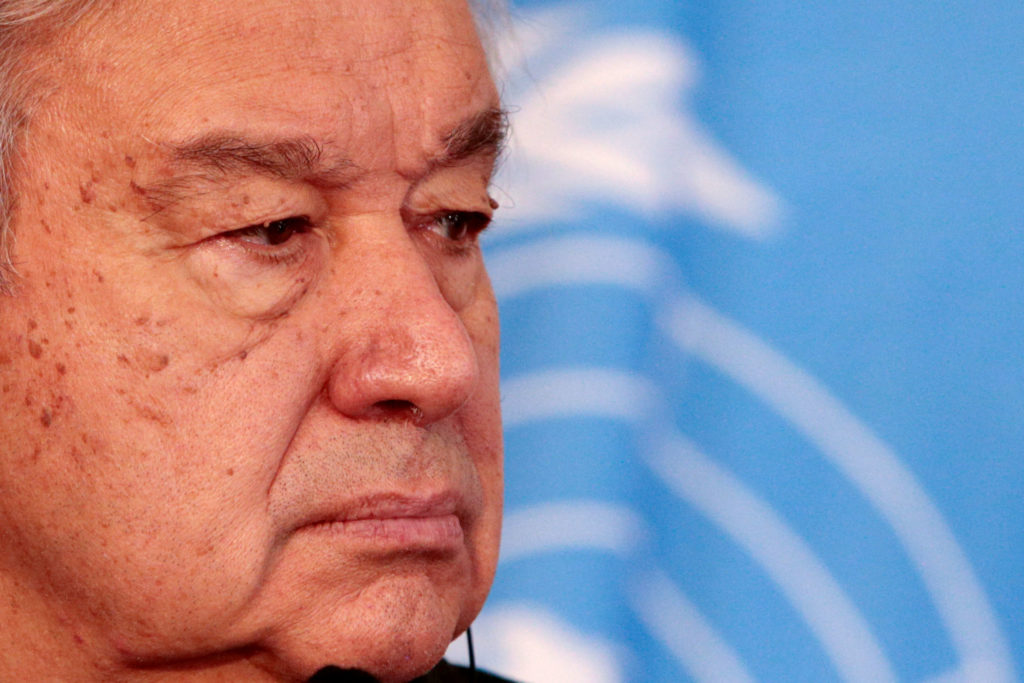Brasília – The United Nations (UN) warned this Thursday (27) current international policies are leading the Earth to a 2.8° C warming by the end of the century. UN Secretary-General António Guterres (pictured above) said the world is headed for catastrophe.
In a video message, he mentioned a report from the United Nations Environment Program (UNEP) showing that, far from limiting global warming to 1.5ºC or 2ºC above pre-industrial levels, the way countries are acting now, unable to deliver on their promises, will lead to temperature increases reaching 2.8°C by 2100.
If concrete commitments made at the last United Nations Conference on Climate Change (COP26) held in Glasgow last year would be fulfilled, the projection could only decrease to 2.4 or 2.6°C by the end of the century, he said. The report recalls the Earth is currently 1.1°C warmer than in pre-industrial times.
Less than two weeks before COP27, in the Egyptian city of Sharm el-Sheik, Guterres warned carbon neutrality goals “are worth nothing” without actions to honor them. He called on governments, particularly those of the G20, the group of the world’s 20 biggest economies, private groups, and financial institutions, to bridge “the gap” between these commitments and what would be necessary to respect the goals of the Paris agreement.
Guterres warned the “world cannot afford to greenwash,” an expression meaning the illegitimate appropriation of environmentalist virtues by people or institutions through marketing and public relations strategies. Thousands of companies have announced carbon neutrality targets. Still, many are suspected or openly accused of not meeting commitments in actions or investments, which are facilitated by the absence of a common international framework for evaluating and overseeing emission reduction commitments.
Recalling the need to invest massively in renewable energies, the secretary also called for creating a “historic pact” between the developed and emerging economies of the G20 to promote a fair energy transition. According to the UNEP report, the world is moving away from fossil fuels too slowly.
*With information from RTP – Rádio e Televisão de Portugal
Translated by Elúsio Brasileiro




